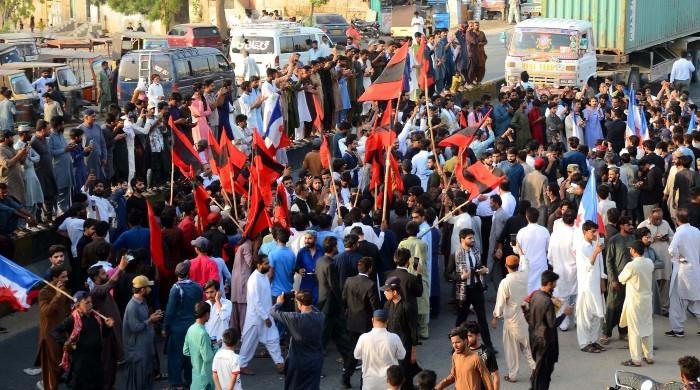Sindh Lawyers End Sit-ins After CCI Rejects Canal Project
SUKKUR: Following the Council of Common Interests’ (CCI) rejection of the proposed new canals project on the Indus River, attorneys in Sindh declared an end to all sit-in protests on Tuesday, with the exception of the one at Baberlo Bypass in Khairpur.
Celebrations erupted at Baberlo bypass, where a protest had been ongoing for twelve days, upon hearing the news that the federal government’s canal construction plan had been denied. Demonstrators voiced their happiness, hailing it as a triumph for Sindh’s solidarity and strength.
The All Sindh Lawyers Action Committee has announced the cessation of all other sit-in demonstrations throughout the province. Court strikes will officially cease beginning April 30. The Baberlo Bypass sit-in, however, will proceed for the time being due to extra demands that have yet to be satisfied.
Lawyer Sarfraz Metlo stated that the action committee would confer with Sindh government representatives in Sukkur today to push for demands, including the elimination of corporate farming, the dismissal of charges against protesting lawyers, and the return of seized vehicles.
Metlo stated that the decision to end the Baberlo sit-in will be made following the conclusion of this meeting.
Meanwhile, Karachi Bar President Aamir Nawaz Warraich noted that while the Baberlo Bypass sit-in is ongoing, traffic is now moving freely. He said that now that the construction of new canals has been halted, the corporate farming projects should also be abandoned.
Despite the resolution, the prior blockades have left more than 40,000 cars stranded at various spots, severely impeding the movement of goods and essential commodities between Sindh and Punjab.
In Karachi, the protest on the Link Road connecting the National Highway to the Super Highway—organized by lawyers and political activists—has also concluded, allowing traffic to resume as normal, according to the Traffic Police.
The protest, which was led by attorneys and political figures, had been going on for several days, resulting in considerable traffic congestion.
Similarly, lawyer sit-ins in Kandhkot, Ghotki, and other locations have ended, which has improved mobility throughout the province.
The CCI, presided over by Prime Minister Shehbaz Sharif, convened the previous day and rejected the federal government’s plan to construct new canals from the Indus River. The council also reversed the Executive Committee of the National Economic Council’s (ECNEC) approval, which had been granted on February 7.
The federal government has pledged to involve all provincial governments in order to achieve long-term agreement on agricultural and water management policies.
The CCI also resolved to return IRSA’s January water availability certificate and seek wider consultations with all relevant parties.
A new committee comprised of representatives from both the federal and provincial governments will be established to propose solutions that are consistent with the Water Apportionment Accord of 1991 and the Water Policy of 2018.
The canal project, a component of the Green Pakistan Initiative, sparked weeks of demonstrations across Sindh as worries grew that it would jeopardize the province’s historical water rights under the 1991 Accord.
Political and nationalist organizations, civil society organizations, and lawyers came together to organize large rallies and sit-ins at strategic locations, paralyzing traffic on major highways.
Despite earlier assurances from the prime minister that no project would move forward without consensus, protests persisted until the CCI made its formal decision.
The Cholistan canals project, which was eventually abandoned, was estimated to cost Rs211.4 billion and was intended to bring thousands of acres of unproductive land in Punjab’s Cholistan desert under cultivation.



Comments (0)
No comments yet. Be the first to comment!
Leave a Comment